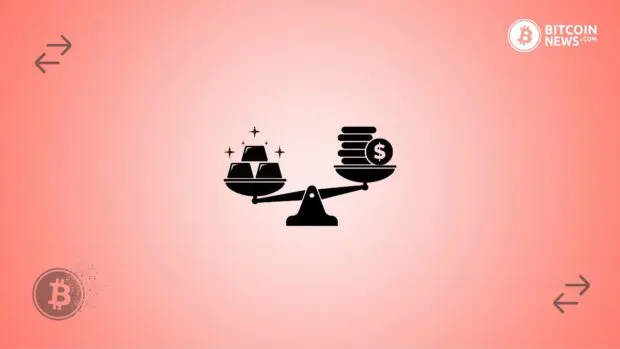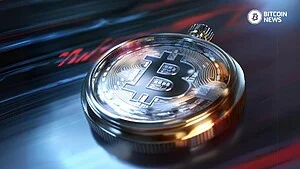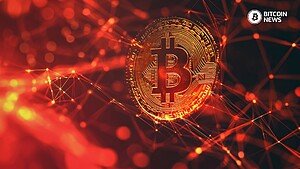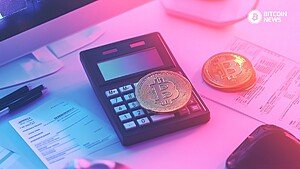Table of Contents
“Fiat Currency vs Gold Standard” is a topic that has sparked extensive debate and analysis among economists, historians, and financial experts. This article delves into the fundamental differences between these two monetary systems, examining their impact on the economy, society, and individual financial stability.
The transition from the gold standard to fiat currency represents a significant shift in how nations value and manage their monetary systems, and understanding this evolution is crucial in comprehending current economic dynamics.
Fiat Currency: Definition and Characteristics
Fiat currency represents a type of monetary system where the money used is not underpinned by any physical commodity such as gold or silver. Instead, its value hinges primarily on the trust and confidence bestowed upon it by its users.
The term ‘fiat’ stems from Latin, meaning “By Decree,” highlighting its nature as a currency issued by governmental authority. Unlike systems backed by tangible assets, fiat currency is not convertible at demand into a set quantity of a physical commodity.
The worth of fiat money is predominantly governed by the level of trust it commands, the intricate supply and demand dynamics within the foreign exchange (forex) market, and the overall economic stability and performance of the government that issues it. This system allows for more fluidity (greater government control) of monetary policy, but it also places significant responsibility on the governing bodies to maintain the currency’s value and the public’s trust.
Key Features:
- Not backed by a physical commodity
- Value based on government decree and public trust
- Flexible monetary policy
Gold Standard: Definition and Characteristics
The gold standard represents an economic framework wherein the value of a nation’s currency, or paper money, is inextricably linked to gold. In such a system, the government pledges to convert its currency into a predetermined amount of gold, thereby anchoring the currency’s worth to a fixed quantity of this precious metal.
Historically, before the advent and widespread adoption of state-backed currencies—some pegged to gold and others not—and the emergence of a dominant global reserve currency (successively held by the Netherlands, the United Kingdom, and currently the United States), gold reigned as the premier medium of exchange for approximately 5000 years. Gold is quite lindy.
This time-honored system, predating the total shift to fiat currency in 1971, was the hallmark of international finance and trade, particularly throughout the 19th and early 20th centuries. The gold standard not only facilitated a sense of global monetary stability but also served as a universal measure of value, bridging economic transactions across different nations and cultures.
Key Features:
- Currency value tied to gold
- Fixed exchange rates
- Limited government control over the money supply
Comparative Analysis: Fiat Currency vs Gold Standard
1. Economic Stability
- Fiat Currency: Allows governments to adjust the money supply, and fund wars.
- Gold Standard: Provides less flexibility in economic crises due to fixed money supply.
2. Inflation Control
- Fiat Currency: Higher risk of inflation if monetary policy is not managed effectively.
- Gold Standard: Generally limits inflation due to the fixed supply of gold.
3. Global Trade and Exchange Rates
- Fiat Currency: Flexible exchange rates can fluctuate based on economic conditions.
- Gold Standard: Stable exchange rates, promoting predictability in international trade.
4. Government Policy and Intervention
- Fiat Currency: Allows for more active government intervention in the economy.
- Gold Standard: Limits government intervention due to fixed gold reserves.
Historical Context and the Shift from Gold to Fiat
The shift from the gold standard to fiat currency was gradual, with key moments like the Bank of England’s move to monopolize credit for war efforts during World War I and then the U.S. completely abandoning the gold standard in 1971 when other countries were redeeming paper for gold because the US was spending more money than it had in Vietnam. This transition reflected changing economic philosophies and the need for greater flexibility in monetary policy, particularly in response to economic crises.
What Went Wrong With Fiat
Fiat currencies, with enough time, always fail due to their inherent lack of intrinsic value and the unchecked power it grants governments over the monetary system.
Without a tangible asset like gold anchoring their worth, fiat currencies are vulnerable to devaluation through inflation, often driven by excessive money printing to fund governmental expenditures, including wars. This detachment from a physical standard has led to various economic crises, eroding public trust and destabilizing global financial systems.
The shift from a gold standard to fiat currency, while offering increased monetary velocity, inadvertently introduced systemic vulnerabilities. These include the risk of hyperinflation, loss of purchasing power, and the potential for economic mismanagement by central authorities. It underscores the importance of a more stable, decentralized form of currency that is immune to governmental manipulation and fiscal irresponsibility.
Replacing money’s store of value function with a means of control function is not ideal for money, and it won’t last. Luckily, digital gold might just be the solution the world needs in order to have a global money that actually stores value over time.
Comparative Analysis: Fiat Currency vs Bitcoin
1. Economic Stability
- Fiat Currency: Empowers governments to manipulate the money supply, often financing expansive projects and conflicts. This manipulation can lead to economic instability due to the arbitrary control over monetary policy.
- Bitcoin: Offers a stable, predictable supply, capped at 21 million coins, eliminating the ability for such manipulation and fostering economic stability through scarcity and decentralization.
2. Inflation Control
- Fiat Currency: Prone to inflation, with central banks frequently inflating the money supply, diminishing purchasing power over time. The control over inflation is theoretical and often fails in practice.
- Bitcoin: Inherently anti-inflationary with a predetermined issuance rate, halving every four years, ensuring a gradual reduction in new supply until the cap is reached, effectively preserving value.
3. Global Trade and Exchange Rates
- Fiat Currency: Exchange rates are volatile, influenced by government policies, market speculation, and economic indicators, complicating international trade and investment.
- Bitcoin: Facilitates a universal, borderless form of money, reducing the complexity of exchange rates and enhancing global trade efficiency. Its decentralized nature means it’s not tied to any single economy’s health or policies.
4. Government Policy and Intervention
- Fiat Currency: Enables extensive government intervention in financial markets, often leading to market distortions and economic cycles driven by policy changes rather than market fundamentals.
- Bitcoin: Minimizes the scope for government intervention, empowering individuals with financial sovereignty and protecting assets from confiscation or devaluation through policy changes.
From A Fiat Standard to A Bitcoin Standard
The gradual disillusionment with fiat currencies, marked by significant events such as the abandonment of the gold standard in 1971 and subsequent financial crises, underscored the limitations of current monetary systems. These events highlighted the need for a monetary system that is not susceptible to government manipulation, inflation, and the erosion of purchasing power.
Bitcoin is emerging as a response to these systemic vulnerabilities, offering a decentralized, secure, and transparent monetary system. While gold has been a steadfast store of value for millennia, Bitcoin, maturing rapidly in its 15-year existence, offers a revolutionary blend: the agility to match fiat’s velocity and the robustness to preserve purchasing power akin to gold.
Bitcoin’s fixed supply and decentralized nature present a compelling alternative to the current global reserve currency, promising a return to sound monetary principles in the digital age. The shift towards Bitcoin represents a growing recognition of the need for a more stable, reliable form of money in an increasingly digital and globalized economy.
FAQ
u003cstrongu003eWhat is fiat currency, and how does it differ from the gold standard?u003c/strongu003e
Fiat currency is a form of money not backed by physical commodities like gold, relying on trust and government decree. In contrast, the gold standard ties a nation’s currency value to a fixed quantity of gold.
u003cstrongu003eWhat are the key features of fiat currency and the gold standard?u003c/strongu003e
Fiat currency is not backed by a physical commodity, relies on trust, and allows for flexible monetary policy. The gold standard ties currency to gold, maintains fixed exchange rates, and limits government control over the money supply.
u003cstrongu003eHow does economic stability differ between fiat currency and the gold standard?u003c/strongu003e
Fiat currency allows governments to adjust the money supply for economic stability, while the gold standard provides less flexibility due to a fixed money supply.
u003cstrongu003eWhat are the implications of inflation control under fiat currency and the gold standard?u003c/strongu003e
Fiat currency poses a higher risk of inflation if not managed effectively, whereas the gold standard generally limits inflation due to the fixed supply of gold.
u003cstrongu003eHow do global trade and exchange rates vary between fiat currency and the gold standard?u003c/strongu003e
Fiat currency allows flexible exchange rates influenced by economic conditions, while the gold standard provides stable exchange rates, promoting predictability in international trade.
How did the world shift from gold standard to fiat currencies?
The shift was gradual, influenced by events like the Bank of England’s actions during World War I and the U.S. completely abandoning the gold standard in 1971 due to economic philosophies and the need for flexibility in monetary policy.
What are the problems with fiat currencies?
Fiat currencies are prone to devaluation through inflation, leading to economic crises, loss of public trust, and destabilization of global financial systems.
u003cstrongu003eHow does Bitcoin compare to fiat currencyu003c/strongu003e?
Bitcoin offers stability through a capped supply, anti-inflationary design, efficiency in global trade, and minimizes government intervention compared to fiat currency.
u003cstrongu003eWhy is there a growing interest in Bitcoin as an alternative to fiat currency?u003c/strongu003e
Bitcoin addresses the limitations of fiat currencies, providing a decentralized, secure, and transparent monetary system that is not susceptible to government manipulation and inflation.
What are the benefits of shifting from fiat currencies to a Bitcoin standard?
The shift signifies a recognition of the need for a stable, reliable form of money in the digital age, with Bitcoin offering a decentralized alternative to the current global reserve currency, promising a return to sound monetary principles.










